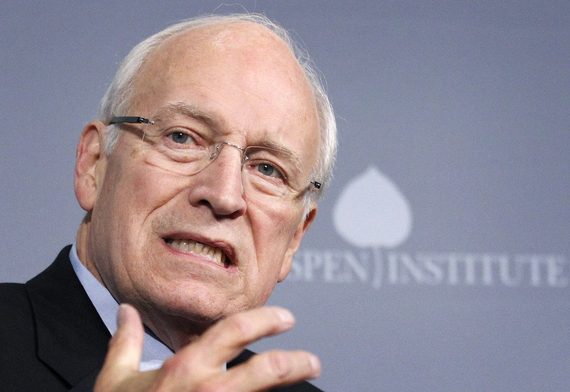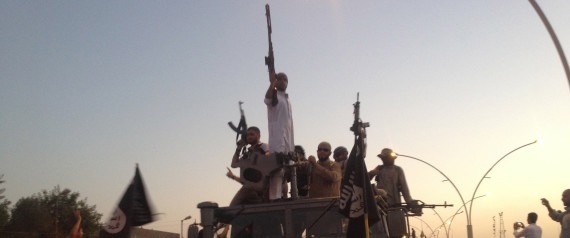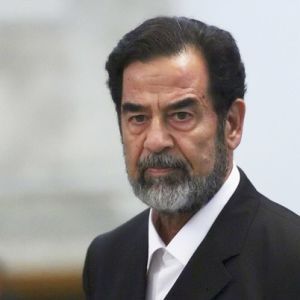As the world becomes more outraged about the atrocities that ISIL is committing, the US and its Western allies continue to scramble for an effective strategy to stem the spread of this well organized and deadly movement. To a war weary American public it seems that no one wants to hear about a bloody return to Iraq. And, no one wants to hear that it was one fateful decision by the US that planted the seeds that created ISIL.
After the 2003 invasion of Iraq Paul Bremer, the US Administrator for the country, made what I consider one of the worst US policy decisions in recent Mideast history. With a stroke of his pen, Bremer dissolved the Iraqi Army, rendering 300,000 battle-hardened soldiers and their commanders out of work. This was the only national entity that would have been able to control the violence that ensued in Iraq. Before it was weakened by our sanctions after the first Gulf war, the Iraqi army was feared by non-nationalist factions and respected by law-abiding Iraqi citizens. Saddam had sent tens of thousands of his soldiers to their death on the Iranian border with our CIA supplying them with sophisticated weapons. That decade-long war was fought in order to stop the Iranian nihilistic branch of Shia from spreading to the Arab Peninsula. No other Arab army had been shaped by trench warfare like Saddam's army. After Bremer enacted the wishes of his superiors Rumsfeld and Cheney, the largest employer in Iraq disappeared. And the thinking was what? That the entire military apparatus can find jobs in the private sector where the old economy was on life support after 12 years of sanctions or in the new economy where US controlled everything? 
By outlawing the Ba'ath party the US took away the still-emerging Iraqi national identity and its largest symbol, the army. Without jobs but with military knowledge and weapons, these soldiers turned their skills to destabilize Iraq and the foreign presence that took away their power and livelihood. Initially, they kept a low profile by working behind the scenes with militias that wreaked havoc everywhere. In the midst of the Syrian civil war, they found the Syrian desert to be the ideal place for expanding their reach for recruiting and training jihadis from all over the world. Military style training combined with a seductive ideology that promised the return to the rule of the Caliph helped young recruits find purpose and a sense of belonging through a cause that is far larger than themselves. This quickly became a new meme for every disenfranchised young Muslim. In a short period of time Saddam's ex soldiers became the senior military leaders for these recruits that poured in from everywhere.

The appearance of ISIL is in large part, a reaction to the new Iraq and its new constitution that gave more power to the Shia. Maliki, the Shia Prime Minister has not acted out of nationalistic values of inclusion. Instead he acted out of tribalistic values to even the score against Saddam's past treatment of Iraq's Shia. Maliki had systematically marginalized the Sunnis since he came to power. Sunni militias, wanted to destabilize Iraq's Shia government but needed better tactics than the suicide bombing that proved ineffective. As the training and the command and control structure of ISIL proved successful in Syria, Saddam's Sunni ex soldiers took over Mosul for their expanded operations. According to Charles Lister, a Mideast terror analyst, within 12 month of establishing themselves in Mosul, the senior military leadership of ISIL began to reclaim its military professionalism. They reestablished old intelligence networks into local governments and security forces that has served them extremely well.

While Saddam hid behind the non-sectarian face of the Ba'ath ideology and did his dirty deeds from behind the scenes, ISIL wants none of that. They want the world to see their brutality and military skills that no other group can even come close to matching. This impressive display of raw power has accomplished two major objectives: 1. It showed that unless we can read the local social and political memes through a lens I call Indigenous Intelligence, nation building by the West will continue to be a failure, and 2. The re-emergence of Sunni power in Iraq, as brutal as it is, has inspired wealthy Sunnis in the Gulf region to provide them with vast financial support aimed at stemming Shia power. This is the real fight. As long as the motivation is sectarian the region will never know the next stage of development, or the nation building phase.
For the West to act surprised and plead ignorance about the quick rise of ISIL is like asking the reader to forget about the allies' actions that led to this moment in history. The Middle East in not a place that forgets about cause and effect or the tribal mores of revenge and pride. Our leaders should know better. Most of all it seems that the West hasn't learned from 100 years of failed policies in the region. From the arbitrary carving of nations by the British and the French to the blind support of dictators. It seems that the region has always been an after thought in our foreign policy. There has been no sustainable strategies to help the region build nations or build the right institutions that fit each society. If the West is serious about engaging in the future of the region our approach can't be based our failed actions of the past. We have to engage the vast majority of the culture which are Millennials and women, through building human capacities that act as a natural detractors to terrorism and violence. We have to impose economic sanctions on nations with poor human rights records instead of turning a blind eye. We must encourage policies that can build an Arab middle class that is the heart and soul of first world countries.
This is the next frontier in geo-politics that requires far deeper understanding of the values that motivate cultures and what is needed to put each country on a sustainable development track. This is what makes humanity leave its violent past behind. Beyond ISIL and the current chaos in Middle East two questions remain: 1- Are the current leaders in the region ready to embrace the next stage of development or nation- building for their societies, and 2- Is the West ready for this vast change in perspective towards the region. The answer to both questions requires a conscious effort that recognizes the heavy human cost of policies that are misaligned with cultural values.